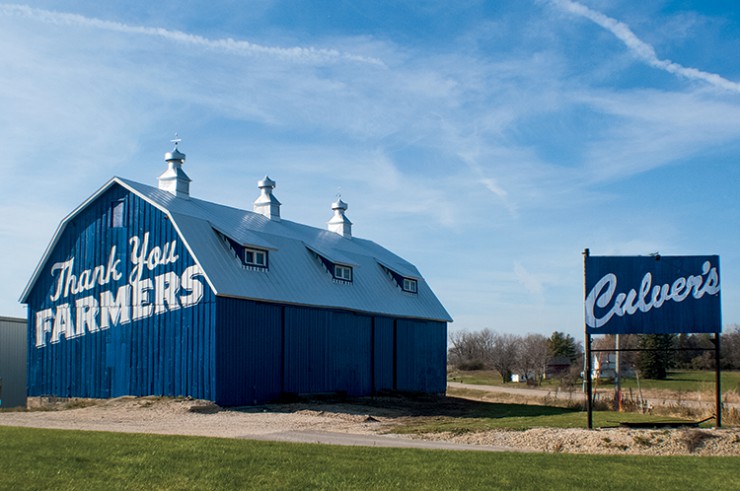Home > Wisconsin > Wisconsin Farm to Table > Culver’s: Wisconsin’s Cheese and Custard Ambassador
Culver’s: Wisconsin’s Cheese and Custard Ambassador
In partnership with: Wisconsin Department of Agriculture, Trade and Consumer Protection.

Culver’s is a 30-year-old Wisconsin brand beloved for turning the idea of fast food on its head with fresh, quick, made-to-order meals.
The company, equally known for promoting Wisconsin’s food staples and producers, employing its people and supporting its local communities, now numbers 508 stores in 22 states.
“One thing that Craig Culver has always said is, ‘I never dreamed we’d have 500 restaurants,’” says Communications Director Paul Pitas. “There’s really no grand plan on where we want to be in five years. Craig is of the mindset that if you develop each restaurant to make it the best it can be, the numbers will take care of themselves.”
And take care of themselves they have. Although primarily clustered in the Midwestern states of Wisconsin, Minnesota, Illinois, Iowa and Michigan, Culver’s now counts 18 restaurants in the Phoenix and Tucson areas, four in Florida, along with Idaho, Utah, South Carolina and more. Each franchise is independently owned, yet at every location, Culver’s still uses only Midwest beef and Wisconsin dairy products.
To put that in perspective, in just one year, Culver’s serves up 96 million slices of Wisconsin cheese and 8 million portions of Real Wisconsin Cheese Curds. They go through enough ground beef to make 81.5 million single Butterburgers, and enough custard to fill eight Olympic-size swimming pools – or keep 5,500 dairy cows busy year round.
That’s why, even as stores spread to places where customers have never heard of cheese curds or custard, Culver’s remains fiercely true to its roots. The Thank You Farmers campaign – perhaps best marked by the bright blue barn on Highway 151 near Beaver Dam – is about more than grateful words.
“We wanted to provide some financial support to help young people who want to make agriculture a career,” says Pitas, noting that the campaign’s first year involved more than $220,000 in donations to the National FFA Foundation and local chapters, along with 5,000 thank you notes to farmers written by guests through the website. Fifty-thousand children donated at the restaurant level.
“Part of the culture around here is to become engaged and involved in your community and give back where you can,” says Pitas. “We wouldn’t be where we are today without farmers.”



